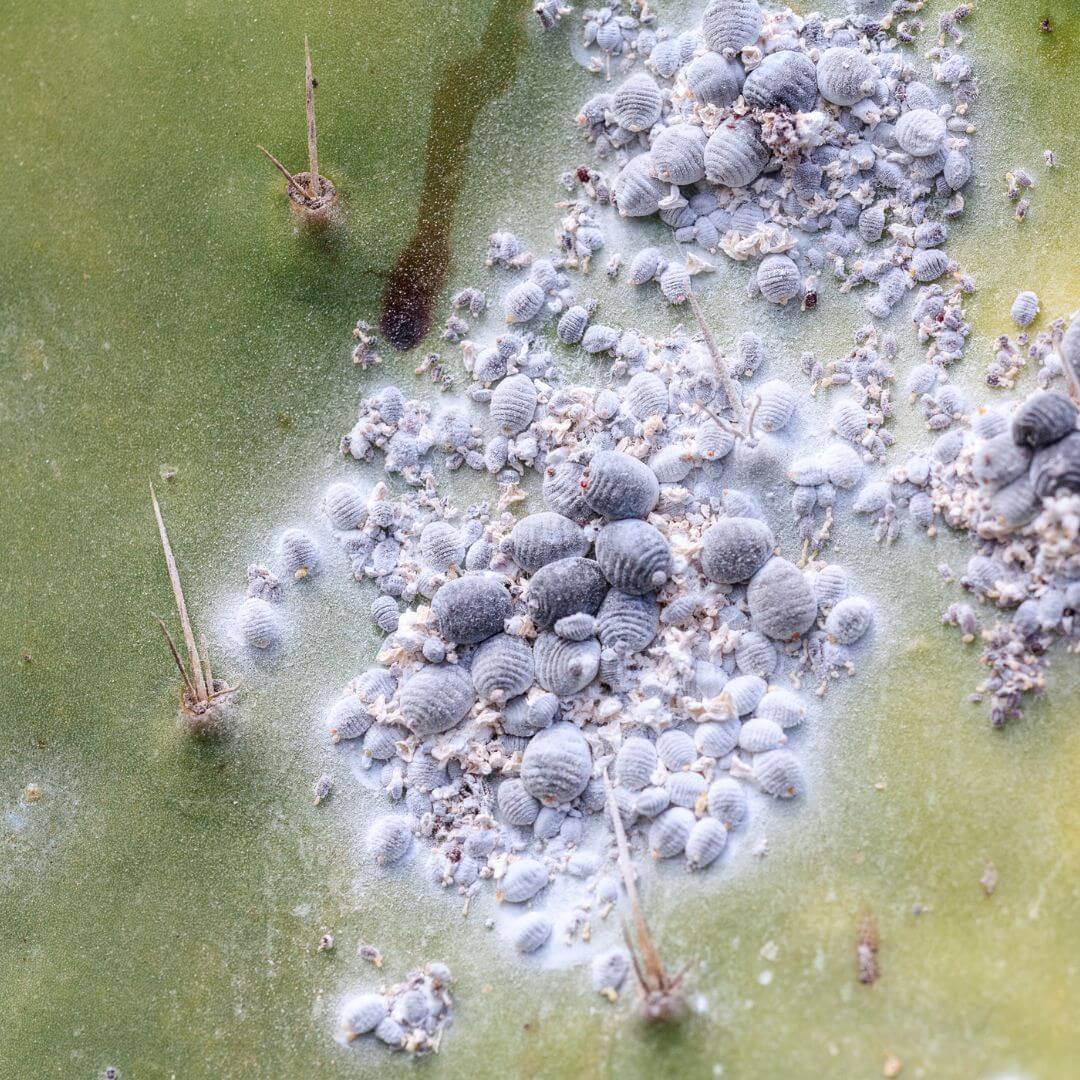How Safe is Carmine Used in Cosmetics?
Posted by Angela - Naturally Safe Cosmetics on 1st Mar 2023
(1 ½ minute read)
Carmine is an ingredient often used in makeup and other cosmetic products to provide vibrant colours. It's also used to add colour to certain food and beverages and also in textiles. But what are the potential risks associated with its use? In this article, we explore the safety and effectiveness of carmine in cosmetics.
What is carmine?
Carmine - also known as cochineal - is a deep red dye derived from the pulverised bodies of certain female scale insects native to South America and Mexico. These insects are known as cochineal insects and they are a type of parasite that lives on cactus plants. The cochineal insect contains carminic acid which is extracted from the dead insects and is processed to create carmine. Basically, the insects are brushed off the cactus and killed by one of several methods (e.g. immersion in hot water or a hot oven) and then dried, crushed and boiled. Apparently it takes 70,000 insects to create around 450 grams of carmine!

The shells of dead female cochineal insects (cactus parasites) are are crushed and boiled to make carminic acid (carmine) for use in food and cosmetics (image source: Canva)
Which products contain carmine?
In the beauty industry, many products contain carmine, including some lipsticks, eye shadows, blushes, nail polishes and foundations. When it comes to product labelling, carmine has numerous synonyms, including:
- Carmine
- Carminic Acid
- Cochineal Extract
- Crimson Lake
- Natural Red 4
- CI 75470
and many more.
Why is carmine used in cosmetics?
Some cosmetics manufacturers prefer to use carmine in their products in order to achieve certain colours like bright red (think fire engine red), crimson, purple, pink and orange. Colours produced without carmine - for example, those produced with iron oxides or plant ingredients - tend to be a little less vibrant.
Are there risks or side effects associated with carmine in cosmetics?
While carmine seems to be generally regarded as safe for most people, it has been associated with severe allergic reactions in some individuals who are sensitive to it. In response to reports of severe allergic reactions, including anaphylaxis, the US Food and Drug Administration (FDA) requires that cochineal extract or carmine must be declared "prominently and conspicuously"on the label of all food and cosmetic products which contain the ingredient.
Is carmine vegan?
No. Carmine is listed in PETA's Caring Consumer Guide as a substance of animal origin and, therefore, it is not vegan.
Naturally Safe Cosmetics does not stock cosmetics containing carmine. Honestly, just the thought of it is pretty "yuck" to us! And when you take a look at our range of colour cosmetics (lipsticks, eyeshadows, blushes and the like), you'll see that it is possible to produce gorgeous colour options without the use of carmine.
Sources: britannica.com/technology/cochineal; health.harvard.edu; ewg.org/skindeep/


